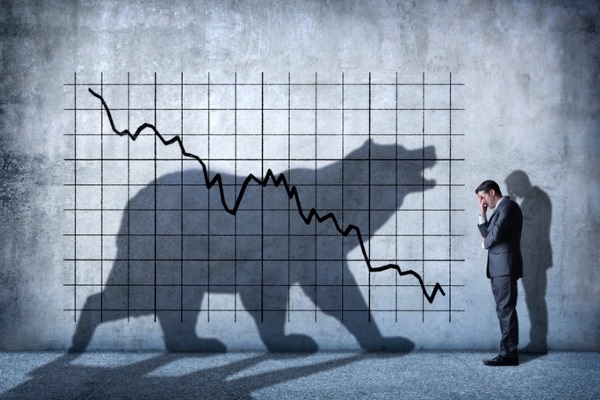Fund investors have not been this cautious for more than a year
Fund sales fell in October, amid uncertainty over rising levels of inflation and potential rate rises.
3rd December 2021 09:53
by Kyle Caldwell from interactive investor
Fund sales declined in October, amid uncertainty over rising levels of inflation and potential interest rate rises.

Fund sales slipped to a 13-month low in October; a sign of greater levels of investor caution amid rising inflation levels and potential interest rate rises.
The figures from the Investment Association (IA) show £1.7 billion was invested in funds during October, down from £2.3 billion in September. October’s fund sales represented the lowest amount since September 2020.
Investor sentiment towards the Omicron variant, which was discovered in November, was not reflected in the data.
As Chris Cummings, chief executive of the IA, says, “time will tell how the Omicron variant will impact sales in November and December”.
Cummings added: “A key theme for October appears to be ‘wait and see’ for many savers. Uncertainty around how much, and how fast, interest rates are going to rise to try to ease inflation may be a factor, but investors are also feeling the pinch of rising prices and may simply feel less able to put money aside, whether to cash savings or investments.
“In addition, investors will be keeping an eye on when central banks start to unwind quantitative easing more, which will have an impact on equity valuations.”
Once again, UK equity funds proved to be unpopular, despite the country’s cheap valuation compared to its own history and versus international peers. A total of £661 million was withdrawn. The UK All Companies sector posted outflows of £349 million, while UK Equity Income and UK Smaller Companies lost a respective £235 million and £76 million.
- Funds Fan: interest rate rise tips, three funds under review, and High Young interview
- The UK market is cheap and unloved, but there's a key reason to tread carefully
- Investors are piling into responsible investment funds
The other region investors pulled money out of was the US, with £180 million withdrawn.
Overall fund sales into equity funds was in positive territory, at £280 million, but notably down compared to September, when the figure stood at £700 million. Global funds and Asia funds were in demand, attracting £586 million and £201 million.
Investor caution was also reflected by funds classed as ‘other’, including targeted absolute return, volatility managed, unclassified, and the newly launched Commodity/Natural Resources and Infrastructure sectors being the best-selling asset class with £698 million in net retail sales.
Bonds was the second best-selling asset class, with £597 million invested, while following closely behind in third place was mixed asset funds, which received £578 million of inflows.
- Check out our award-winning stocks and shares ISA
- Top 10 most-popular investment funds: November
- Friends & Family: ii customers can give up to five people a free subscription to ii, for just £5 a month extra. Learn more
Two types of funds that have been selling like hot cakes in 2021 continued to prove highly popular - tracker funds and responsible investment funds, with both attracting £1.5 billion.
Funds under management for responsible investment funds stood at £88.7 billion as of the end of October. Their overall share of industry funds under management, however, remains small, at 5.7%.
Tracker funds under management stood at £291 billion as of the end of October. Their overall share of industry funds under management now stands at 18.6%. In 2007, before the financial crisis, the amount held in trackers was a mere £29 billion, which at the time represented 6.3% of the total.
During the crisis, from September 2007 to April 2009, the average fund in the IA’s UK All Companies sector fell 40%, according to FE Analytics. This was in line with the losses posted by both the FTSE 100 and FTSE All-Share indices.
For some investors, the fact that active fund managers were not able to give a better account of themselves was enough to undermine their faith in active management.
These articles are provided for information purposes only. Occasionally, an opinion about whether to buy or sell a specific investment may be provided by third parties. The content is not intended to be a personal recommendation to buy or sell any financial instrument or product, or to adopt any investment strategy as it is not provided based on an assessment of your investing knowledge and experience, your financial situation or your investment objectives. The value of your investments, and the income derived from them, may go down as well as up. You may not get back all the money that you invest. The investments referred to in this article may not be suitable for all investors, and if in doubt, an investor should seek advice from a qualified investment adviser.
Full performance can be found on the company or index summary page on the interactive investor website. Simply click on the company's or index name highlighted in the article.